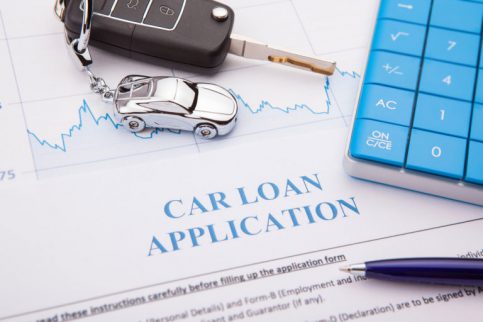When you pass a car dealership, you may see a car with a sign announcing a low weekly or monthly payment, e.g., “Pay only $150/week!” If this fits within your budget, then good. However, read the small print: What’s the length of the loan? Car dealers will vary in what they say in their advertising, but if the small print mentions a 72-month loan, consider a different car.
72-Month Loans Make Expensive Cars Affordable
Yes, that’s true. However, as beautiful and exciting as that car may seem to you, how happy will you feel if you’re still paying it off five years down the road? Remember, too, that life happens. You could get laid off from your job of 15 years, or become seriously ill, or need to care for an elderly loved one whose health has declined. Events like these will bring extra financial commitments into your life. Wouldn’t it be nice to not have to worry about car payments?
Choose a Cheaper Car Instead
Life events can happen at any time, of course. But if you’ve chosen a 72-month loan because it makes your dream car affordable, it means you can’t afford your dream car in the first place. If you can afford $150/week on your loan plus all the extra car costs involved, then find a car you can pay off in 36 or 48 months instead. Unless you’re driving an older model used car, chances are good your car will last past your loan. That means several years without any car payments. Use that money instead to save up for life’s events, or maybe even that nice car you had actually wanted.
Run the Numbers
I can’t guarantee what your interest rate will be, because a lot depends on your credit history. However, I can at least show you a few numbers and demonstrate how, even with a low interest rate, you’re giving a lot more money to the lender in a 72-month lease than in a 48-month one.
Consider this scenario: You want to buy a $25,000 car. Including 13 percent HST, the total is $28,250. You pay down $5,000, leaving you with a loan of $23,250. Your lender charges you 5 percent interest.
48-month loan: $535.43/month, $2,450.69 in total interest charges.
60-month loan: $438.76/month, $3,075.37 in total interest charges.
72-month loan: 374.44/month, $3,709.66 in total interest charges.
Taking an extra two years to pay off that loan means you’re paying the bank almost $1,300 more in interest. And if your credit history is bad , do not give your business to any dealer who will allow you to have a 72-month loan at a very high interest rate.
Use a loan calculator to help you run preliminary numbers.
Insurance Total Loss
A car depreciates quickly in its first year, so after you’ve paid off the first year of your 72-month loan, you’re in a negative equity situation. This means you owe more on your vehicle than what it’s worth. Should you get into an accident and your insurance company declares your vehicle a total loss, they will pay you the market rate of your vehicle at that time, not what you still owe on your loan. This means you’ll still be making car payments on a vehicle you no longer own.
Play It Smart With Car Loans
Buying a car is often the highlight of the year for many people. That can make it hard to say no to something you know you shouldn’t buy. But getting into a 72-month loan because it makes that unaffordable car affordable can be a financial accident waiting to happen. Make sure you’ve weighed all sides of the equation before signing on the dotted line.


